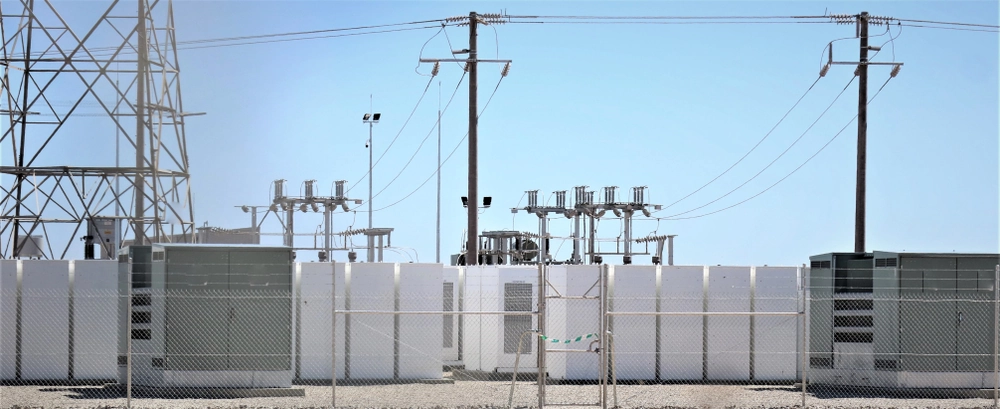
More red tape for BESS operators or a step in the right direction?

By Kee Evans, Aliki Zeri, Sophie Jacobs
7 Feb 2024 | 3 minute read
BESS and the environmental permitting regime
Foot Anstey's specialist Clean Energy team works closely with developers and operators of Battery Energy Storage Systems ("BESS") and has seen how regulatory changes on the horizon can impact strategic planning.
As discussed in our article Co-location of battery storage assets: creating value for clean energy projects, BESS are a priority in the UK as they can act as a mechanism for balancing the acceleration in renewable energy generation with the delays in obtaining available connection to the grid. As a result, BESS will continue to be a focal point of the energy market and policy in 2024.
As the technology and market for BESS is developing rapidly, in turn, so is its applicable regulatory regime. The Department for Business & Trade ("DBT") published the UK Battery Strategy Policy Document on 6 December 2023, announcing, amongst other things, the UK government's intention to consult on including BESS in the existing environmental permitting regime as soon as possible.
So, change may be coming over the horizon.
What is the UK's environmental permitting regime?
In the UK, the Environmental Permitting (England and Wales) Regulations 2016 (as amended) ("the Regulations") govern the environmental permitting regime. In Scotland, a similar regime applies under the Environmental Authorisations (Scotland) Regulations 2018.
The Regulations make environmental permits a mandatory requirement for operators who are carrying out certain activities which release emissions or waste, including:
- Operation of a "regulated facility", for example, facilities at which activities involve waste operations or incineration, industrial emissions, mining, radioactive substances, water discharge, groundwater, solvent emissions, flood risk, medium combustion plants, specified small generators; and
- Knowingly permitting or causing water discharge or groundwater activities.
Failure to comply with the regime can give rise to civil and criminal liability. Failure to hold an environmental permit where one is required, or committing a breach of an existing environmental permit can, in the most severe cases, result in an unlimited fine and/or criminal prosecution. Our Clean Energy team includes regulatory lawyers who advise and represent businesses under investigation for breaching the Regulations when interviewed under caution and/or prosecuted in the criminal courts.
The regulators tasked with enforcement of the environmental permitting regime are the Environment Agency, National Resources Wales, and local authorities for certain operations and in Scotland, the Scottish Environmental Protection Agency. These regulators may soften their approach where an operator admits to a breach at the earliest stage.
How might BESS be covered under the environmental permitting regime?
The Lithium-ion Battery Storage (Fire Safety and Environmental Permits) Bill, a private members bill, was presented in Parliament in September 2022. The Bill was sponsored by Dame Maria Miller, who raised concerns in respect of the fire risks incidental to the facilities, the mitigation of which could require significant amounts of water, which could become contaminated and result in environmental damage. The Bill sparked further discussions in Parliament around where BESS facilities may be situated, for example, where these are close to schools, hospitals, houses, rivers, or industrial chemical manufacturing plants.
Whilst the Bill has not progressed, the concerns raised are being considered by DEFRA and DBT and a government consultation on bringing BESS under the environmental permitting regime is due later this year.
How would the requirement to hold an environmental permit impact a BESS operator?
If BESS facilities were to be brought under the environmental permitting regime, this could result in additional costs for BESS developers. The permitting application process can be lengthy, complex, and costly. Permits are subject to periodic review by the regulator, and so operators may be required to update or renew permits in light of new information. Of course, failure to meet requirements can give rise to significant sanctions.
Whilst this may seem burdensome at first glance, including BESS in an established regime would bolster fire safety and support the development of best practice across the industry.
Such best practice may even already have been adopted by the industry, with regulation following suit. In a recent interview, Gore Street Capital's (one of the largest owners and operators of BESS systems globally) CEO, advised that fire safety is at the heart of the fund's operations and that the fund will often go beyond what is prescribed by legislation to ensure that such risks are mitigated. Further regulation in this space, is expected to have a similar positive result for the BESS industry in the UK.
Our Clean Energy team has in-depth knowledge of the existing environmental permitting regime, advising clients to anticipate regulatory change, prevent breach or penalties, and on the appropriate approach if liability arises.
Please contact one of our specialist lawyers below for a closer look at the issues highlighted in this article.






